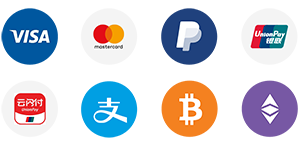Why Expats Should not Go for Sole Proprietorship in HK?
When you are planning of doing business in offshore jurisdictions – such as Hong Kong, acquiring a business entity that perfectly supports your goal is a big part of your business proposal.
As a corporate service provider based in Hong Kong, a kind of inquiry about setting up Hong Kong Sole Proprietorship (or sole trader, it means the same) is frequently found in our mail box. However, the senders are neither a Hong Kong resident nor a “work” visa holder, some of them have already failed their Hong Kong sole-proprietorship registration application once but they are not told the reason.
They are desperate for advice of successful application. However, they are doomed to fail.
Why my registration of Sole Proprietorship failed?
If we read the requirement of Business Registration by IRD (it will be go through below), it tells that the application of Business Registration must be submitted “no later than 1 month after the commencement of those businesses”, it assumes that the applicant can only begin the application of registration must possess the ability to begin their businesses before they submit the registration.
Residency does matters
If the sole trader-to-be does not possess Hong Kong residency statue which allow them to take part directly into businesses and does not hold valid Visa which allows its holder to take part in the registration-needed businesses as said above, for example: Visit Visa – which prohibits the holder to take part in any form of these businesses in Hong Kong, the applicant is technically cannot provide any proof of the commencement of his business.
To truly understand the reason, we needed to understand the meaning of being as a Sole Proprietor as well as the official way to register as one of it in Hong Kong:
Characteristics of Sole Proprietorship
Firm of single owner
Sole Proprietorship is business firm consists of single individual owner; the only way to expand the firm is by hiring employees to work for the firm.
No restriction on owner’s national and place of residency
The law in Hong Kong does not have provision on national and place of residency of an individual to do business; some industries does require specific license / permit from authorities to enter.
Unincorporated firm
Sole Proprietorship is one of the 2 unincorporated entities for business in Hong Kong (another is Partnership), which mean Sole Proprietorship is not a separated legal entity from the owner, it explains why the owners of unincorporated entities are described as “self-employed“.
We see that those expats who contact us see only its advantage offered by unincorporated firm as the least complicated kinds of businesses to start in terms of filing workload and legal restrictions on registration and maintenance. However, we must inform them its drawbacks which seem overwhelming:
Unlimited Liability (Disadvantage):
The deepest disadvantage of Sole Proprietorship (and any unincorporated firm) is the owners’ liability to the risk and debt incurred by all business activities are unlimited i.e. the owners are personally liable to all the risk of their firm.
The ambitious expats may overlook the underlying influence of owner’s liability to its firm. If a customer or vendor is going to sue an unincorporated firm, the owners’ personal assets can be involved without limited in any legal action taken against the firm. The sole traders could not only lose their business but also personal saving and home if a lawsuit is filed against their firm. In the case that owners’ assets cannot offset all of the liability, personal bankruptcy is the possible outcome.
Restricted Source of Financing (Disadvantage):
Investors who decide to finance a sole proprietorship firm find they can only inject capital and asset directly to the firm owner, and they cannot claim ownership as well as manageability to the firm in return. Potential investors hesitate to make the investment.
Difficulty in Succession (Disadvantage):
A Sole Proprietorship firm would simply cease to exist when the owner stops the business operation or passes away since the firm is not a separated legal entity from the owner.
Business Registration
Registration in Inland Revenue Department (IRD) only (Advantage):
As mentioned, Sole Proprietorship is not an incorporated business, so its registration does not involve the Companies Registry. Its registration requires only involvement of Business Registration Office under Inland Revenue Department. It is logical since business means income, income is taxable, the tax department steps in.
By Hong Kong laws, the persons who bear business in Hong Kong must register must their businesses in Inland Revenue Department no later than 1 month after the commencement of those businesses.
Successful registration will result in a document named Business Registration Certificate with validity of either 1-year or 3-year since the commencement date of the business.
The applicant must provide a local address as the business address, the particular of the owner , and the name of firm on the application form. Government fee and levy are applied on every application at the current rate.
Types of registration-needed business
In short, IRD deems any form of trade, commerce, craftsmanship, profession, calling or other activity carried on for the purpose of gain in Hong Kong as registration–required business so that the owner of the business must register himself in IRD.
Return obligation on Sole Proprietorship
Renewal of Business Registration Certificate only (Advantage):
As the simplest form of business entity, its annual maintenance is as simplest as its registration – head to IRD and renew its Business Registration Certificate – done.
Exempted from Audited Account (Advantage):
Audited Account is not required by law on unincorporated entities.
Taxation on Sole Proprietorship
Simply tax regime (Neutral):
Only 3 direct incomes are taxed in Hong Kong – Salaries Tax on individual income from employment; Profits Tax on corporate income (both incorporated and incorporated businesses) from business; Property Tax on the property owners who gain in transfer of property ownership.
Territorial principle of taxation (Neutral):
This principle is the major piece of Hong Kong tax law. Simply, only the profits that are sourced in or derived from Hong Kong are taxed. It applies on taxation of the 3 direct income tax said above.
Low tax rate (Advantage):
Income derived from activities of a Sole Proprietorship is taxable under the Profits Tax, it tax rate for incorporated body is flat 16.5 pc on its assessable income, while tax rate for unincorporated body is flat 15 pc.
Assessed together with Individual Incomes (Advantage):
Since Sole Proprietorship is a type of unincorporated entity which exists as an non-separated entity of the owner, every individual taxpayer who is also a sole trader can elect for “Personal Assessment” in their tax return in a tax year so that all of the individual income including the profits from his Sole Proprietorship firm can be assessed in a bundled under the Salaries Tax scheme, and enjoy the generous allowance and deductions.
Conclusion
Sole Proprietorship is never the choice for expats without the rights to work and doing business in Hong Kong. Their only solution to setup business entity in Hong Kong is incorporation of Private Company Limited by Shares (i.e. Limited Company).
In general, setting up a sole proprietorship takes almost no time and requires a bare minimum amount of legal work and fee.
The nature of unincorporated body means that the owners of Sole Proprietorship bear unlimited liability to their firm, it may lead to personal bankruptcy when lawsuits against the firm are filed. However, some expats may find it advantageous:
Since an individual and his Sole Proprietorship firm is bounded together with the laws, it implies that the owners of Sole Proprietorship firm must be utterly responsible for every action of their firm thus the unincorporated entity could be a tool to build the confidence of customers and vendors customers and vendors in doing business with.
We still advise that expats should no go for Sole Proprietorship even they possess the rights since they can find adequate resource in the legal and accounting service to support the incorporation in Hong Kong at reasonable cost. Most importantly, the nature of business is to venture to unknown, risk is inevitable. When the tools to shield the owners from personal liability is readily available, why a business owner bothers himself to take Sole Proprietorship? Why not the owner select Limited Company in Hong Kong to unleash his full potential to realize his business?

![Asia Business Centre (Asia Business Centre (AsiaBC) [HK+SG Bank Account Opening / Company Formation / Company Secretary / Accounting & Tax])](https://asiabc.com.cn/wp-content/uploads/Blog-Banner-Why-Expats-Should-not-Go-for-1030x464.png)

![Asia Business Centre (Asia Business Centre (AsiaBC) [HK+SG Bank Account Opening / Company Formation / Company Secretary / Accounting & Tax])](https://asiabc.com.cn/wp-content/uploads/Blog-Banner-4-Potential-Industries-in-HK-80x80.png)
![Asia Business Centre (Asia Business Centre (AsiaBC) [HK+SG Bank Account Opening / Company Formation / Company Secretary / Accounting & Tax])](https://asiabc.com.cn/wp-content/uploads/Blog-Banner-First-Guide-of-Personal-Loan-in-HK-80x80.png)



